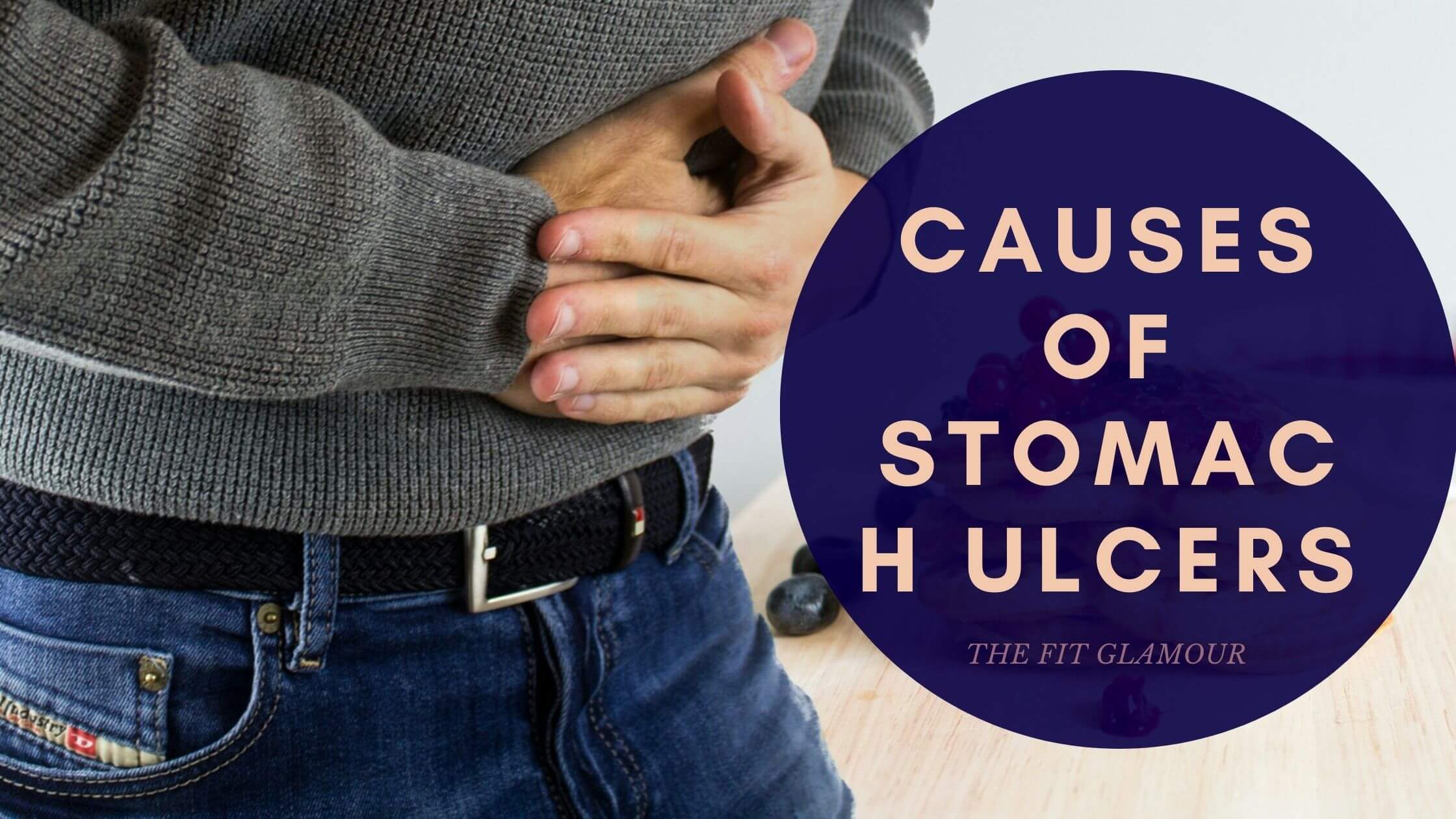
Ulcers are painful sores that can emerge in or on any part of your body and takes time to recover. There are different types of ulcers like peptic ulcers, arterial ulcers, venous ulcers, genital ulcers, mouth ulcers. Peptic ulcers, commonly called stomach ulcers are painful sores forged in the lining of the stomach or small intestine. Stomach ulcers are easily cured but can be severe when left untreated. This article focuses on the details of the causes of stomach ulcers, symptoms, diet, and treatment.
Also Visit Health Mafia For Related Article
READ MORE: Prevent Pain In Neck And Shoulder Quickly
Types of stomach ulcers:
There are three types of stomach ulcers; Gastric ulcers, that evolves in the stomach lining, Esophageal ulcers, that evolves in the esophagus, and Duodenal ulcer, that expands in the small intestine.
Stomach ulcer symptoms:
The most common stomach ulcer symptom is a burning feeling between the chest and stomach that feels like heartburn. The pain causes discomfort in the stomach and can be interpreted as biting pain induced by indigestion. The pain becomes more fierce when your stomach is empty.
Heart burning sensation is felt in the lower part of the chest. Other symptoms include bloating, nausea, vomiting, dull pain in the stomach, loss of appetite because of pain, anaemia, dark stools, and burping.
Sometimes, stomach ulcer symptoms remain unnoticed due to which they do not get diagnosed in time. This is because of common symptoms like heartburn and indigestion. In such cases, stomach ulcers become brutal and can even incite a void in the stomach wall.
Causes of stomach ulcers
Stomach ulcers or peptic ulcers are caused when digestive juices damage the walls of your stomach or intestine. However, there are two main causes of stomach ulcers; an infection by H pylori bacteria and Non-steroidal Anti-inflammatory Drugs (NSAIDs), a class of painkillers.
NSAID drugs like aspirin can cause a high risk of stomach ulcers when consumed in high doses for an extended time. These drugs should not be taken without a recommendation from a doctor. Stress may also be a cause of stomach ulcers as physiological stress can heighten stomach acid.
Other causes may include; excess stomach acidity, which may be because of smoking, stress, or genetics.
Few risk factors that are also responsible for causes of stomach ulcers include smoking, genetics, frequently consuming alcohol, and steroids.
Diagnosis:
The diagnosis of stomach ulcers is done based on your symptoms and their stringency. The doctor may prescribe you a few tests that include a breath test, in which they will verify the level of carbon dioxide. This test is accomplished to know that H pylori are present in your blood or not. Other tests and procedures may include Endoscopy or barium swallow.
Stomach ulcer treatment:
There are surgical as well as non-surgical treatments available for treating stomach ulcers. However, the treatment varies on the cause of your ulcer. Ulcers can be treated with antibiotics and other drugs. Non-surgical treatments may include proton pump inhibitors ( PPIs) that block the cells in the stomach that produce acid, probiotics, bismuth supplement. You may develop some side effects due to medication like dizziness, headaches, abdominal pain, nausea.
However, these side effects are temporary and vanish with time.
It’s very rare when your doctor recommends a stomach ulcer surgery. In cases in which stomach ulcers do not heal, reoccurs, tear through the stomach, surgery is recommended. A stomach ulcer surgery may include wrapping off a bleeding artery, entire ulcer removal, taking tissue from another part of the intestine, and mending it over the ulcer area.
Stomach ulcer diet:
A stomach ulcer diet can help stomach ulcers from developing. If you are at risk of developing a stomach ulcer, you must include these nutrients in your diet:
Probiotics:
Foods that have a high content of active bacteria like probiotic yogurt, kombucha, miso, can assist in reducing infection from Helicobacter pylori. This food can also improve the symptoms of indigestion.
Fruits and vegetables:
Fruits and Vegetables are rich in antioxidants and have anti-inflammatory properties. Consuming these foods can help you in improving digestion and keep you healthy.
Vitamin C:
Vitamin C rich foods help in reducing the effect of H pylori. Consuming oranges, tomatoes, and legumes in small amounts for a long time can give you better results.
Selenium:
Foods high in selenium quantity can help in reducing the risk of infections and also promote healing.
A stomach ulcer diet must include these nutrients along with a diet high in soluble dietary fibre, leafy greens vegetables like spinach and kale, apples, berried, and zinc-rich foods.
Conclusion:
Stomach ulcers should be treated within the time otherwise it may become severe and life-threatening. Moreover, with proper treatment, stomach ulcers get healed. You should keep a look at your diet and take the necessary precautions. In case you have any signs or symptoms of stomach ulcers, you must get a diagnosis as soon as possible.
FAQs
How to sleep with a stomach ulcer?
You should try to sleep on your back. This will help you in not allowing your stomach to get compressed. If you are a side sleeper, you can sleep on your left side. However, you should avoid sleeping on your stomach as it can worsen the condition of your ulcer.
Which type of ulcer is dangerous?
Gastric or Duodenal ulcers can develop into a serious problem when left untreated, especially if you have existing medical conditions. You should get yourself properly diagnosed and treated within time to avoid severity.

0 thoughts on “Stomach Ulcers: Causes, Symptoms, and more”